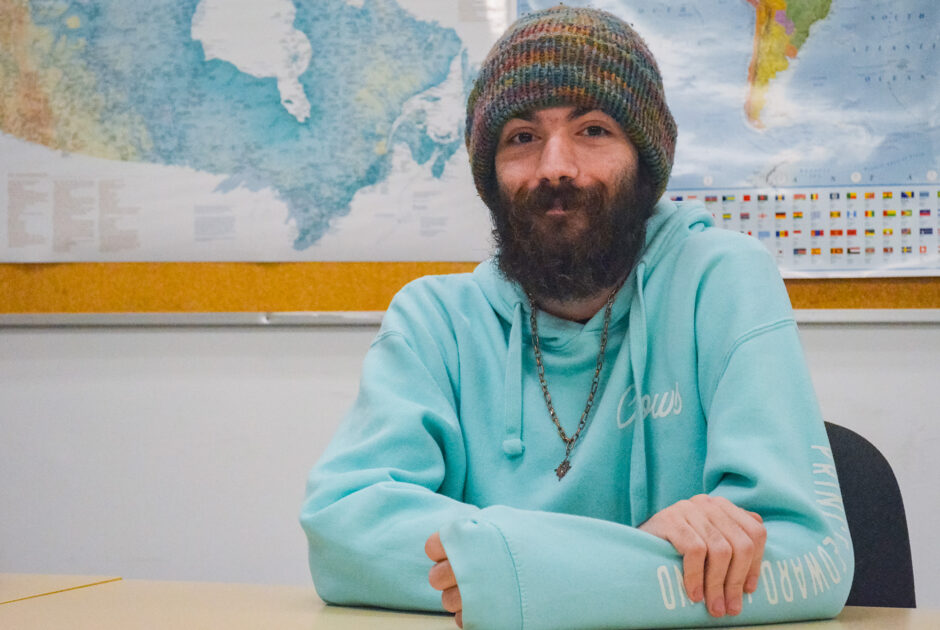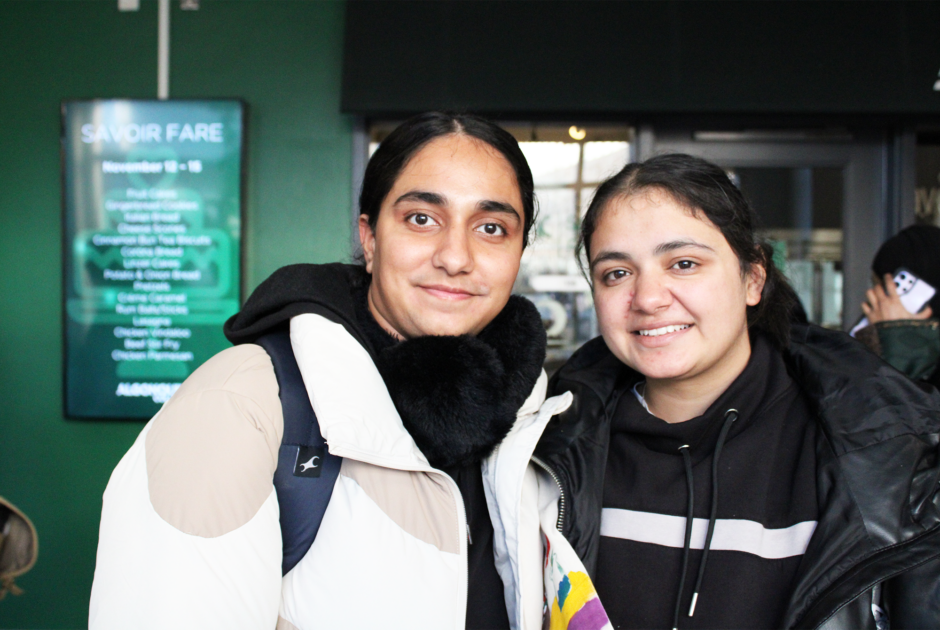Cybersecurity Awareness Month highlights importance of guarding digital footprints
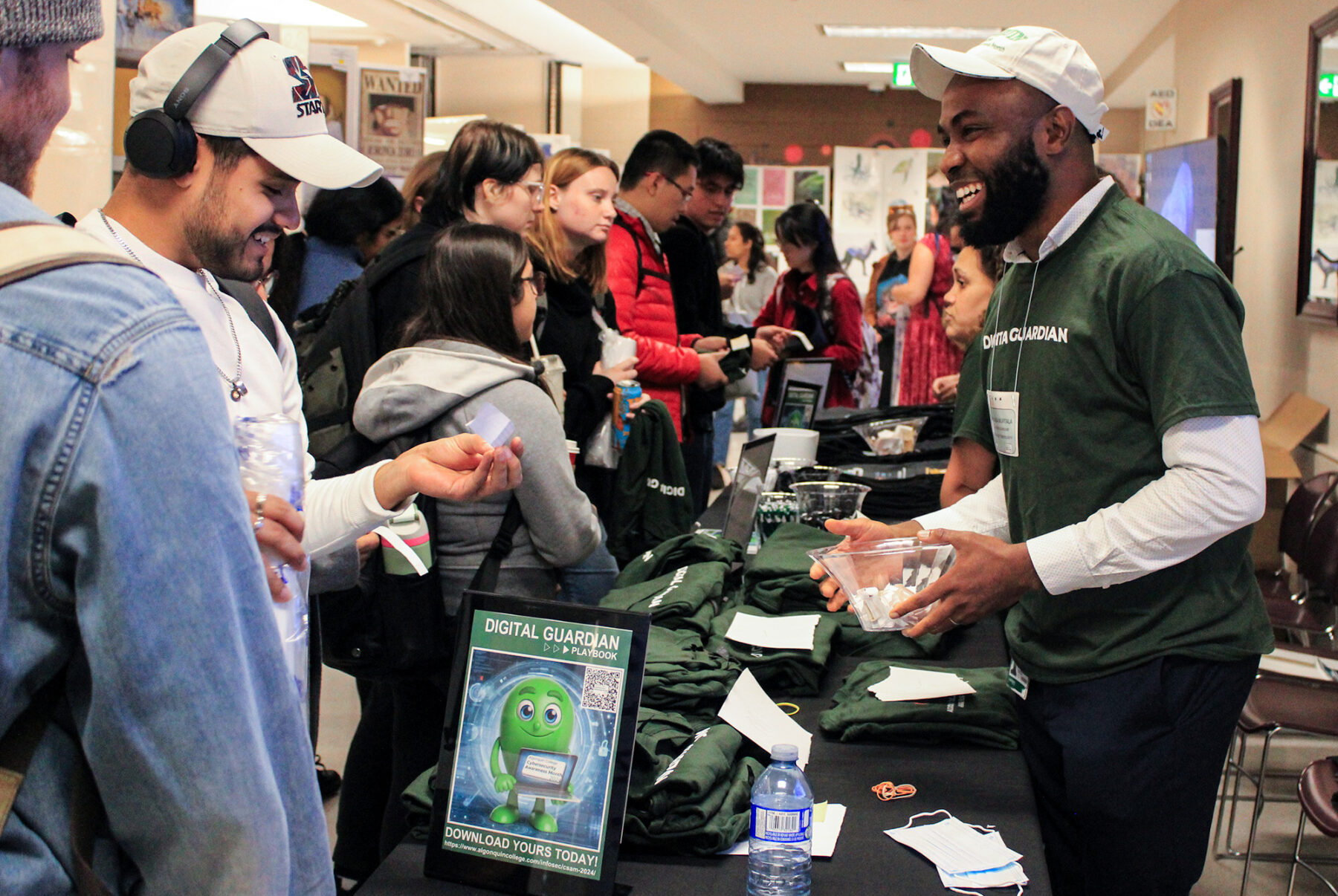
When Daniel Mooney was a kid, he didn’t think twice about sharing personal details online. Like many people, he assumed the internet was a vast, anonymous space where his information would fade into the background.
But years later, someone who disliked him online called him on his birthday to harass him. The person tracked him down using personal information Mooney had shared in the past, leaving him unnerved.
“People get information about you. And even though you don’t think at the time it can be used negatively, it’ll always come back,” said Mooney, a food service staff member at Algonquin College. “Nothing ever leaves the internet.”
Mooney’s experience reflects the consequence of careless digital habits. This October, Algonquin College launched Cybersecurity Awareness Month, aiming to offer students digital guardians and raise awareness about the threats in today’s interconnected world.
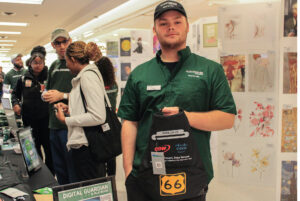
Cybersecurity has become increasingly important. The consequences of careless online habits can go beyond a harassing phone call; they also lead to financial losses, data breaches and reputational damage.
Managing the digital footprint plays a key role in staying safe online.
“Your digital footprint essentially is what you leave of yourself when you’re moving around online,” said Yasmin Nissim, a senior privacy specialist at the college. “For students in particular, be really careful about what you’re posting and when you’re posting.”
While social media and online spaces are often seen as fleeting, Nissim said that deleted content is never truly gone.
“People can always take a screenshot. People can always download a photo,” she said. “And people who are your friends today, they may not be your friends tomorrow.”
Many people enjoy the convenience of using free Wi-Fi or leaving the computer alone at the library while going to the bathroom. “As nice as it is, you may end up paying a much higher price down the road,” said Nissim.
Managing digital footprints can help prevent experiences like the one Mooney had, but it is not enough. Always be cautious and think before clicking. Scams usually manipulate and trick people by rousing emotions.
“It’s trying to get you to click on something with urgency, with interest, or with concern, you know, like those calls that say, ‘Hey, we have your brother in jail, and you need to send $50 for bail,’” said Nissim. “It’s trying to get you in a state where your logic is out the window and you’re acting on emotion.”
Having the knowledge of scams helps people stay away from cyber threats. On Oct. 17, Information Security and Privacy, a team within the Information Technology Services Department at the college, hosted cybersecurity booths to educate students.
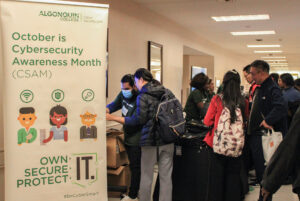
The booth invited participants to answer questions related to online privacy and cybersecurity. People who answered correctly got a tote bag or T-shirt and other small accessories. Beyond the prizes, people not only reinforced their existing knowledge but also gained a deeper understanding of cybersecurity.
“When I did the question, it was nice because it makes you recall all the things that you should always be aware of,” said Lorena Arroyo Perez, a Level 1 web development and internet applications student. “And they told me about this little thing that you can cover your webcam with. I didn’t know about that.”
Armed with cybersecurity knowledge, Mooney is not only less likely to receive harassing phone calls, but he and his friends can also enjoy a safer online space
“It’s other people in my friend circle getting hacked and trying to then use those accounts to try and get information off of the person,” said Mooney.
“It’s a very common thing that a lot of people fall for because especially if it’s a friend of yours and they’re sending you information, you’ll generally trust them, which is where those scams come from,” he said.







